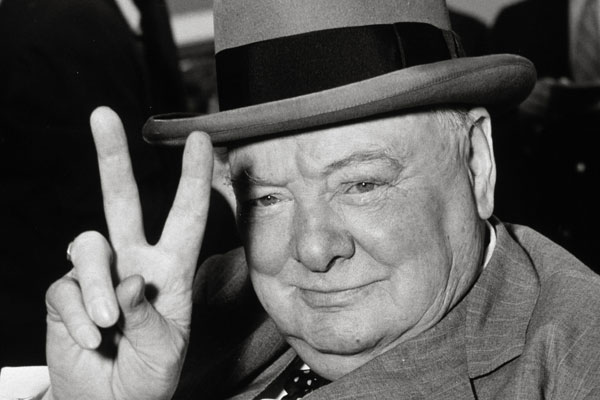Churchill on the “Practical Truth” of the Declaration of Independence
Ted Bromund /
As a statesman, an author, and a friend of the United States, Winston Churchill was regularly called upon to offer his sentiments on the meaning of the Fourth of July. In his remarks over the years, as Lewis E. Lehrman points out, he emphasized a similar theme: Though the Declaration of Independence signaled the American political break from Britain, it was inspired by a shared Anglo–American political tradition of resistance to tyranny.
As Churchill put it during the First World War, when as minister of munitions he spoke at a 1918 Liberty Day rally in London, “A great harmony exists between the Declaration of Independence and all we are fighting for now.… The Declaration of Independence is not only an American document; it follows on the Magna Charta and the Petition of Right as the third of the great title deeds” of liberty, and the “political conceptions embodied in the Declaration of Independence…spring from the same source; they come from the same well of practical truth.”
In his later History of the English Speaking Peoples, Churchill put the same point more prosaically: “The Declaration was in the main a restatement of the principles which had animated the Whig struggle against the later Stuarts and the English Revolution of 1688.” Churchill believed that in Britain, as in America, those principles were not simply principles; they were vital because they worked, and though they stemmed from the Anglo–American tradition, they expressed universal truths:
Wherever men seek to frame polities or constitutions which are intended to safeguard the citizen, be he rich or be he poor, on the one hand from the shame of despotism, on the other from the misery of anarchy, which are devised to combine personal liberty with respect for law and love of country—wherever these desires are sincerely before the makers of constitutions or laws, it is to this original inspiration, this inspiration which was the product of English soil…that they will inevitably be drawn.
But for Churchill, the purpose of history was never just to reveal the past; it was to inspire and shape the future. In 1950, Churchill spoke again about the meaning of the Declaration of Independence. At the height of the Korean War, where the U.S. was playing the leading role but in which British and Commonwealth forces were also engaged, he named his enemy:
Tyranny, external or internal, is our foe whatever trappings or disguises it wears, whatever language it speaks, or perverts. We must forever be on our guard, and always vigilant against it…in those realms of thought which are consecrated to the rights and the dignity of man, and which are so amazingly laid down in the Declaration of Independence.
Churchill’s speeches have been a source of hope and courage for millions. But central to his thought was the political tradition that he celebrated and saw alive in the Declaration. Today, as on every Fourth of July, let what inspired Churchill also inspire us.

